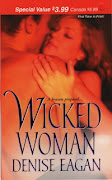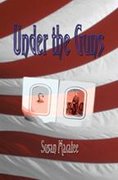According to wikipedia (http://en.wikipedia.org/wiki/Suffragette), suffragists are peaceful protestors and suffragettes are violent protestors. Huh, there’s a difference I wouldn’t have caught. But I guess when you’re protesting the protestors, you tend toward semantics.
Actually, when I see Suffragettes (suffragists, whatever), I think of music. Oh, I know the history of women’s right, not nearly all of it but more than the average person, but music always comes to mind with that word. Don’t know why, I don’t actually know any suffragette songs (songs sung by actual suffragettes), but if anyone does, I’d love to have the link. So, music.
In Mary Poppins, Glynis Johns, as Winifred Banks, sang it in the beginning:
We’re clearly soldiers in petticoats
And dauntless crusaders for woman’s votes
Though we adore men individually
We agree that as a group they’re rather stupid!
Cast off the shackles of yesterday!
Shoulder to shoulder into the fray!
Our daughters’ daughters will adore us
And they’ll sign in grateful chorus
“Well done, Sister Suffragette!”
Or David Bowie’s (or Alice in Chains, or Boy George, or from Frankie Goes to Hollywood, or some group I’ve never heard of, Get Up Kids, or from others, I’m sure) Suffragette City:
Suffragette City
Back in Suffragette City
Way down in Suffragette City
Back in Suffragette City
Doo wah! Suffragette City
Woo Hah! Suffragette City
Way down in Suffragette City
Suffragette City... Suffragette
Ragtime Suffragette (http://www.8notes.com/scores/6017.asp?ftype=midi):
What’s that noise upon the avenue?
What’s that crowd a-doin’ ‘round there too?
What’s the meaning of that awful crash?
Has a taxicab got in a smash?
Johnny, Johnny run and get your gun.
Get in quick or you’ll be dead, my son.
It would make Napolean quake
And shake his head with fear.
Oh dear, oh dear, just look, look, look who’s here;
That ragtime suffragette,
She’s no household pet,
Raggin’ with bombshells and raggin’ with bricks,
Raggin’ and naggin’ with politics,
That ragtime suffragette,
Ragtime suffragette,
For Lordy, while her husband’s wait home to dine,
She’s just rag-gin’ up and down the line.
A-shoutin’ votes, votes, votes for women,
She’s a ragtime suffragette.
Right, so that last one I found on a google search, I didn’t actually know it until today.
It’s hard to believe now, but many women (and men) who fought for women’s rights were treated worse than criminals. They were cruelly imprisoned, dismissed and hated. Okay, okay, so they did drastic things such as throwing themselves in front of the king’s carriage, chaining themselves to railings, setting fire to the contents of mailboxes and other forms of arson, smashing windows, and the “technical assault” (causing no harm) of police officers. They were all jailed.
But drastic time call for drastic measures and all.
Sure, there were pockets of universal suffrage: the Wyoming Territory (1869) became the first modern government where equal suffrage was extended to women, and the British colony of the Pitcairn Islands, gave women the right to vote in 1838.
(Where the *&^ is that? Apparently, there’s an island in the Pacific, population 50 +/-, where they currently raise bees. Yes, bees. According to their website: In 1789, a famous mutiny took place when Master's Mate Fletcher Christian and about half the crew took control of the HMS Bounty, and set the Captain, Lt. William Bligh, adrift in the ship's launch with those crewmembers who remained loyal to him. Several of the mutineers along with their Tahitian & Tubuan consorts and a handful of native men found sanctuary on Pitcairn. The current population of Pitcairn are descendants of 6 of the mutineers from this famous voyage, and their women. http://www.lareau.org/pitc.html)
Technically, the first suffragist in America was Abigail Adams. She admonished her husband, John Adams who was with the 2nd Continental Congress, to “Remember the Ladies and be more generous and favourable to them than your ancestors”. She wrote that on March 31, 1776 (http://www.pbs.org/wgbh/amex/adams/filmmore/ps_ladies.html).
Yet the Declaration of Independence reads: “We hold these truths to be self-evident, that all men are created equal, that they are endowed by their Creator with certain unalienable Rights, that among these are Life, Liberty and the pursuit of Happiness. — That to secure these rights, Governments are instituted among Men, deriving their just powers from the consent of the governed…” (http://www.ushistory.org/Declaration/document/index.htm)
So much for that. We created an entirely new country, broke away from the parent country, something that’d never been done before, and we couldn’t even give all of our people something as simple (as implied in both Declaration and Constitution) as the right to vote. Two more amendments and the 1960s Civil Rights Movement later, and we’re finally nearly there.
But back to 1776. Abigail Adams wrote about women’s rights in 1776, yet it wasn’t until 1837, the same year our Era begins, that something organized happened.
(In 1836, Sarah Grimke began speaking as an abolitionist and a women’s rights advocate; male abolitionists think she’s a liability and force her to stop.)
Lucretia Mott, a Quaker activist, organized the first National Female Anti-Slavery Society convention in New York City. She was denied membership in earlier anti-slavery organizations because she was a woman. Eighty-one delegates from twelve states attended. Lucretia had other encounters besides being denied membership in anti-slavery organizations – the World’s Anti-Slavery Convention in London rejected her and other female American delegates based solely on the fact that they were women.
Apparently, anti-slavery didn’t extend to females.
Skipping ahead to July 1848 and the Seneca Falls convention, and the “Declaration of Sentiments and Resolutions”. (http://www.pinn.net/~sunshine/book-sum/seneca3.html)
Skipping ahead again. 1866: Elizabeth Cady Stanton and Susan B. Anthony, the 2 most recognized names in American Suffrage, form the American Equal Rights Association. This organization is for both white and black women (oh, and men, too, sure you can join!) who want to see everyone able to vote. Universal suffrage.
The 1868, the Fourteenth Amendment is ratified, defining ‘citizens’ and ‘voters’ as male.
A serious blow for women, but they didn’t stop there. During the 1872 presidential election, Susan B. was arrested and brought to trial in Rochester, New York. Sojourner Truth demanded a ballot at a polling booth in Grand Rapids, Michigan. She was only turned away.
1878: A Woman Suffrage Amendment introduced to Congress. It failed. It’ll take another 41 years for it to pass.
Belva Ann Lockwood, a lawyer, can’t practice the law before the Supreme Court. For the next three years, she pursued legislation that finally enabled women to practice before the Court and became the first woman to do so in 1879.
Small steps in America and Britain, we worked hard, with both violent and peaceful movements, creating things for ourselves along the way – newspapers, magazines, books, papers, speeches, law even.
And New Zealand and Australia were the first countries to grant universal suffrage! New Zealand in 1893, Australia in 1894.
American women, as a whole, gained the right to vote in 1919 with the 19th Amendment. British women over the age of thirty gained the right in 1918, women over 21 in 1928.
It took 143 years for women to vote! Yet today, about 56.2% of eligible American women vote (http://www.apsanet.org/content_5270.cfm). What happened? I think our Victorian forebears would be incredibly disappointed in us.
(Most of this information came from: http://memory.loc.gov/ammem/vfwhtml/vfwtl.html)
Tuesday, March 14, 2006
Subscribe to:
Post Comments (Atom)









1 comment:
What a GREAT blog! Thanks to Dee for pointing it out at HHRW
I write gaslights (I used to call them Victorian but several people pointed out that Victoria was not the queen of the US -- where my stories are set.) You have some fun information. If I find a good source/article/whatever, should I send it along to you guys?
Here's one..a contest with my second book got some fun random Victorian facts. http://www.katerothwell.com/contestover.html
Does anyone else write about NYC? I have the BEST historical resources for that city!!
Post a Comment